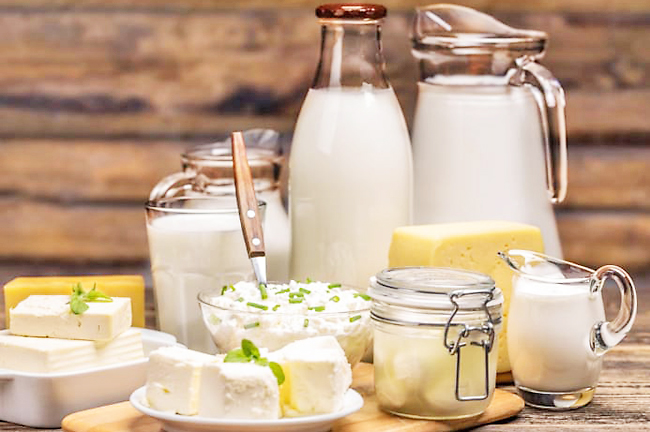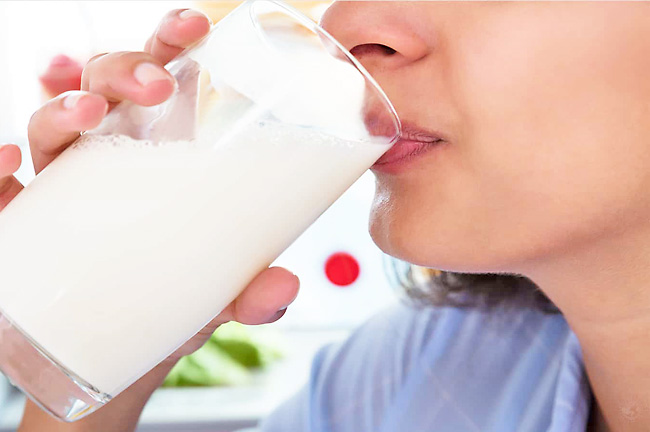Knvul Sheikh
CNA/THE NEW YORK TIMES COMPANY – Does cutting out dairy really help control acne? With the rising popularity of plant-based milks and beauty bloggers insinuating that dairy-based foods and beverages like, “gooey pasta” and “frothy cappuccinos” will worsen conditions such as acne, you might think you need to ditch dairy for the sake of clearer skin.
But while some evidence suggests that cutting back on certain dairy products may help clear up your acne, it may not be for the reasons you think. Here’s what we know.
WHAT DOES THE SCIENCE SUGGEST?
Nutrition research is inherently difficult to conduct, and few studies have examined the relationship between dairy and acne in general, so results are often conflicting, said a paediatric dermatologist at the Penn State Health Milton S Hershey Medical Center Dr Andrea Zaenglein. Experts can only hypothesise as to what the underlying connections may be, and so far the results of studies have been limited and mixed.
In one study of 225 teenagers published in 2016, for example, Dr Zaenglein and her co-authors found that those who drank low-fat or skimmed milk were more likely to have acne than those who drank whole milk. In another study published in 2016 and performed on more than 1,000 adults, researchers concluded that whole milk (in addition to reduced-fat milk) was linked to the appearance of pimples.
When it comes to yoghurt and cheese, there is no evidence that they can lead to more breakouts, according to the American Academy of Dermatology (AAD) Association.


Some dermatologists suggest that the amount of milk (rather than the type of milk) you consume may be most important in acne flare-ups. Others have hypothesised that the artificial and natural hormones present in milk could influence breakouts. And limited research has suggested that the whey protein found in milk might be linked to pimples in some people, based on case studies of athletes whose acne improved after cutting out whey supplements.
IT MAY BE THE SUGAR AND THE CARBS, NOT THE MILK
Still, the most popular theory of all when it comes to the relationship between food and acne has to do with a food’s glycemic index. Food that is rich in sugars and simple carbohydrates tends to rank higher on the glycemic index and is quickly digested by your body, causing blood glucose levels to spike.
Regularly eating high GI foods like pizza, cookies and sweetened yoghurts can force your body to increase its production of insulin and lead to a host of issues over time, including inflammation and acne, said a dermatologist at the Cleveland Clinic Dr Amy Kassouf. While many dairy products are low GI foods, consuming too much of them may also trigger the same pathway of inflammation in the body, exacerbating acne.
Studies have suggested that focussing on eating low glycemic foods, like many vegetables and fruits, beans and whole grains, not only helps stabilise insulin levels, but also leads to a reduction in acne.
“What this really tells us is that acne is a very complex inflammatory disorder,” Dr Zaenglein said. “It’s incredibly difficult to say that one single factor makes a huge difference.”
WHAT IS ACTUALLY PROVEN TO IMPROVE ACNE?
While more research is needed to determine whether going dairy-free can clear up your skin, there is no harm in taking a closer look at the impact your diet may be having. The AAD recommends keeping a food diary and noting when certain foods or drinks seem to trigger a breakout or worsen existing zits. Then, they recommend experimenting with cutting out those foods or drinks to see if that helps.
If you think dairy products in particular are making your skin worse, start by eliminating those that have a high glycemic index, like ice cream, milk shakes and sugary yoghurts. But make sure you’re still getting important nutrients, like protein and calcium, from other parts of your diet. “For many people, dairy is a primary source of protein and calcium in particular. So we have to be very cautious about saying dairy causes acne, because dairy may also be preventing osteoporosis and all sorts of things that are a little bit more directly correlated,” Dr Zaenglein said.
Keep in mind that if you do see any skin changes as a result of cutting out certain foods from your diet, it won’t happen overnight. Based on what she’s seen in her own clinic, Dr Kassouf said, “you have to commit to at least three months and maybe closer to six to really see a positive benefit”.
Still, keeping your skin acne-free may require more than a diet change, said a dermatologist and medical director of the Acne Treatment; Research Center in Brooklyn, New York Dr Hilary Baldwin. “I have never had a patient come to me and say, ‘I gave up dairy and it made all the difference in the world.’”
People with mild acne may benefit from certain over-the-counter products containing the topical retinoid adapalene or the antimicrobial compound benzoyl peroxide, Dr Baldwin said.
But be wary of using too many harsh products, which could include astringents, toners and exfoliants, and products containing alcohol. These can irritate or dry out your skin or make your acne worse, she said.
In fact, according to the AAD, acne-friendly skincare is actually pretty simple: Wash your face twice a day (using gentle cleansers, avoiding harsh scrubbing and rinsing with lukewarm water), avoid touching your face, shampoo your hair when it gets oily and remember to remove makeup before going to bed.
However, people with moderate to severe acne may require prescription treatments, Dr Baldwin said, including topical or oral antibiotics, prescription retinoids, creams that reduce oil production or inflammation, or oral contraceptives.
A dermatologist may also recommend lesser-known treatments, like the blood pressure medication spironolactone, which can reduce oil production and acne. Nutrition is just one of the many factors that may play a role in acne, Dr Baldwin said. Your genetics, hormones, sleep quality and environment can also influence acne. And in the end, she added, there’s no one-size-fits-all solution for everyone.





